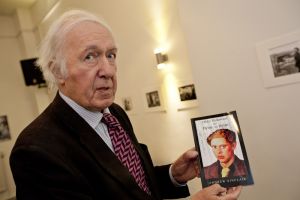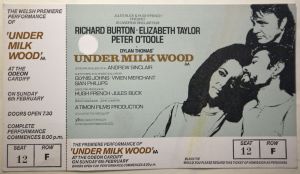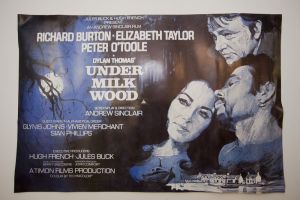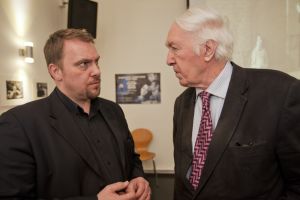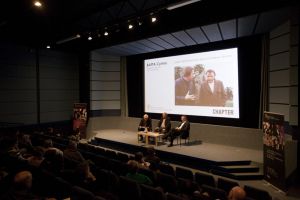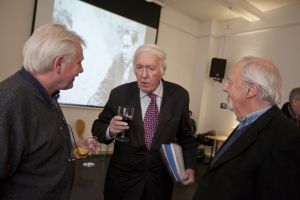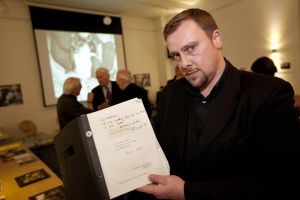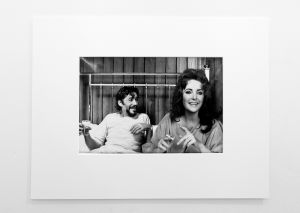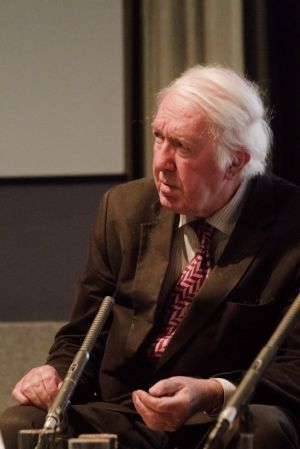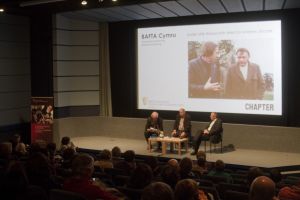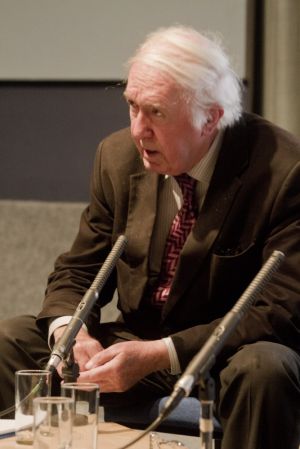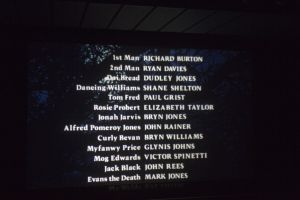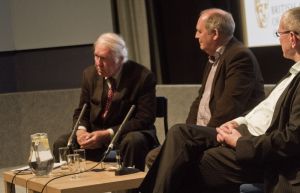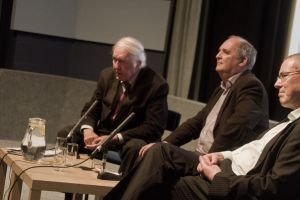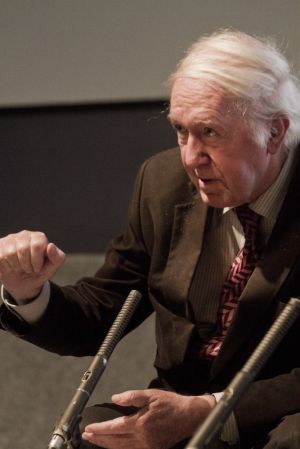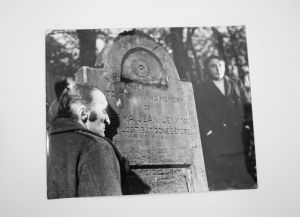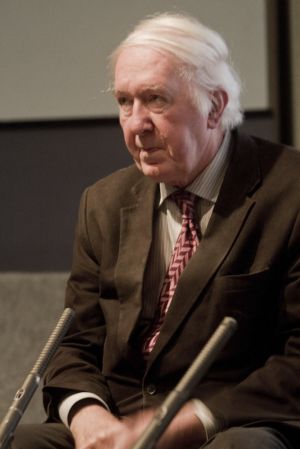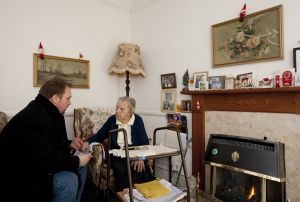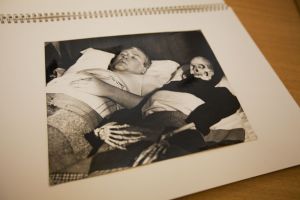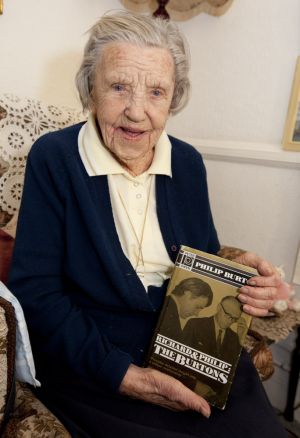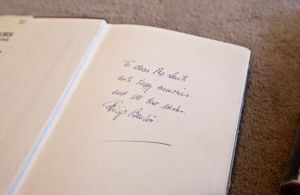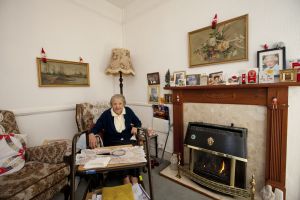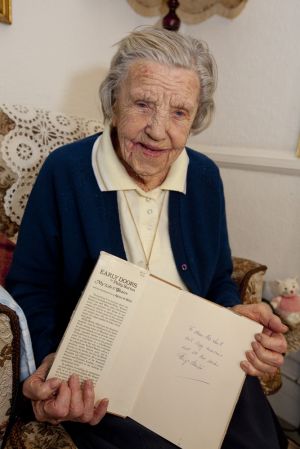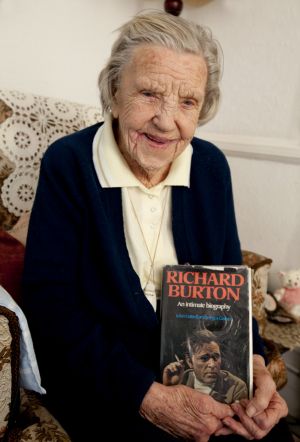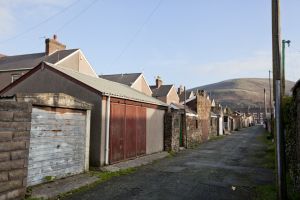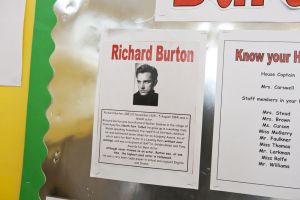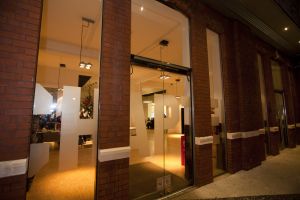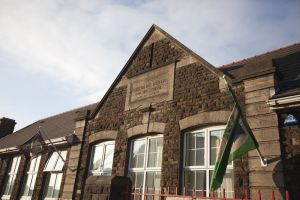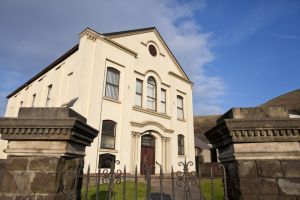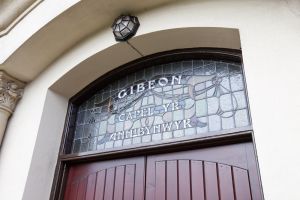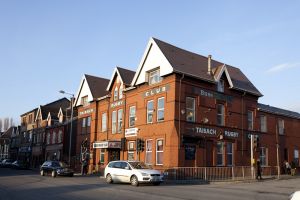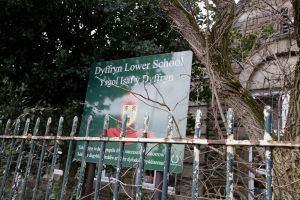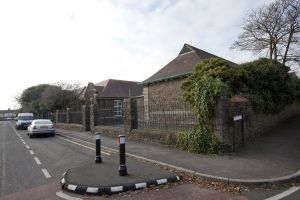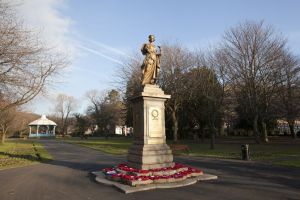Dylan Thomas film Under Milk Wood gifted to Wales
Director gifts all rights for iconic feature film of Dylan Thomas’ Under Milk Wood, starring Elizabeth Taylor, to Wales.
Wales received a pleasant early Christmas gift today when all rights to the Dylan Thomas film Under Milk Wood were gifted to the nation.
Dr Andrew Sinclair directed the 1972 film, which starred Richard Burton, Elizabeth Taylor and Peter O’Toole. Shot on location in Fishguard, Pembrokeshire, the film portrayed the lives of the inhabitants of Thomas’ fictional Welsh village, Llareggub and was based on the original radio play for voices by the Swansea-born poet.
Sinclair announced he is gifting the film, all related media rights, the screenplay and all the physical artefacts related to the making of the film, to the Welsh nation.
Following a special 40th anniversary screening of the movie in Cardiff last night, hosted by BAFTA in Wales and supported by BBC Cymru Wales, Dr Sinclair also announced that a Wales-based trust will be set up, the Milkwood Trust, which will include the poet’s grand-daughter and President of The Dylan Thomas society, Hannah Ellis Thomas.
Dr Sinclair said he wants to “reconcile Dylan Thomas who did not speak Welsh with the genius of the whole Nation.”
Some of the artefacts relating to the making of the film were displayed at the screening last night including letters written by Richard Burton and Elizabeth Taylor, photographs, original scripts signed by Victor Spinetti and other members of the cast. These will be part of the collection given to Wales and will be kept at the National Library’s Film Library in Aberystwyth.
Wales is preparing for the centenary celebrations in 2014 of Thomas’ birth (27 October 1914). A series of events, under the banner of Dylan Thomas 100, will take place throughout 2014 featuring a programme designed to highlight the artistic, cultural, educational and commercial importance of Thomas’s work.
Richard Burton and Under Milk Wood remembered
Drinking sessions with Richard Burton and fleeing from Elizabeth Taylor are just some of the memories of Under Milk Wood director Andrew Sinclair. But he tells Abbie Wightwick that making the movie was one of the best times of his life
IT could have been daunting for a young director – Elizabeth Taylor, Richard Burton and Peter O’Toole lined up to shoot Dylan Thomas’ Under Milk Wood.
Three decades on Andrew Sinclair admits it was a “miracle” the film, shot on location in Wales, was ever made.
The then 36-year-old director didn’t have Hollywood’s golden couple in mind when he wrote the screenplay.
So when his old friend Peter O’Toole rang to say Taylor and Burton would do it, Sinclair kept his cool – something that would prove essential in future dealings with them.
Looking back he says magic was at work. The West Wales weather held, everyone remembered their lines and all the stars turned up, if occasionally a little late and under persuasion.
Wisely, Sinclair also kept his nerve during initial meetings with the famously volatile Burton/Taylor duo.
“Stars can be very difficult. You have to stand up to them,” Sinclair says.
“I went to Richard’s house in Hampstead and he said: ‘You know Andrew, I am the best actor in the world’.
“If I had said ‘yes’ it would be the end as I could not have directed the film, if I said ‘no’ he would walk out. So I said ‘bleee’ and he just laughed.
“I got on incredibly well with Richard.”
Sinclair – who will be attending a special screening of the film in Wales tomorrow to mark the 25th anniversary of Burton’s death – had been an Oxbridge don and Richard liked what he regarded as “clever people”.
They got on so well that later Sinclair and the late Ryan Davies, who played Second Voice in the 1972 film, were invited to Burton’s house.
“We were getting pretty plastered and Richard decided we were his new best friends,” Sinclair recalls.
The actor decided to give them two silver cups belonging to Taylor.
“At that moment in walks Elizabeth,” Sinclair remembers with mock fear.
“She was dressed in a yellow hot pants suit with a mink coat over it, the tails dripping to the floor.”
He mimics her icy voice: “She said ‘what are you doing with those cups?’.
“Well, we just put one each into the hands of the swaying Richard and fled into the night.”
On set Taylor wasn’t keen to look like Rosie Probert, the Welsh whore she was cast as. When she arrived in Cleopatra-style eye make-up for shots at a London studio Sinclair wasn’t sure what to do.
“I said: ‘you can’t look like Cleopatra you’re a Welsh whore’. She said: ‘I am always Cleopatra’.”
Later O’Toole, who played the blind mariner Captain Cat, announced more trouble.
“He told me, ‘you’ve just lost your film. Elizabeth’s not going to appear again’.
“Later Peter said he wanted the Victoria Cross [for bravery] as they all went out and got drunk over lunch and she delivered her lines.”
Things were equally dicey on the first day’s filming in Fishguard.
When Burton, cast as the film’s main narrator, the First Voice, sent word that he was too tired for the evening shoot Sinclair hid his alarm.
“It was my worst moment,” he admits.
“I was an untried director, no-one trusted me. They just thought I was a lunatic. I was a complete unknown.
“I looked into the water, turned around and said to the crew: same place, same set up, 8am tomorrow.”
Despite such moments making Under Milk Wood was a joy, he insists.
“Everyone did it for the love of Dylan, not for me. Richard was a good friend of Dylan’s. No-one got paid more than £200 a week. They wanted to do it for Dylan.
“But making films on a low budget is like guerrilla warfare, you have to improvise.”
Sinclair worked 16-hour days and slept on set while Burton and O’Toole stayed in a hotel in Fishguard.
“I never mingled. Richard and O’Toole were fine in Wales, they loved pubs and joined in the singing.”
Times were different in ’70s Wales. There were no paparazzi. Locals were used as extras and no special trailers separated them from the stars.
“Everyone has minders now. It was so different then,” Sinclair says.
The film, five weeks and £300,000 in the making, had a cast and crew of just 40. Taylor never came to Wales shooting all her scenes in London, but she and Burton’s billing helped secure easy financial backing.
Now, Sinclair can hardly believe he made the film.
“It was a miracle it was made and I don’t quite know how I did it,” he says with a laugh.
At his London home the director still keeps scripts used by the cast.
He roars with laughter as he recounts how Taylor wrote on hers: “what a strange experience”.
For Sinclair it was beyond strange.
“There was a sort of magic with the good weather, the cast and everything. I had no control over these things. It was done for the love of Dylan. You couldn’t make it now. That world has gone.”
